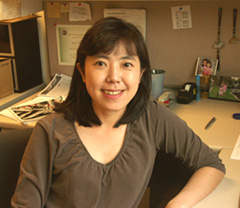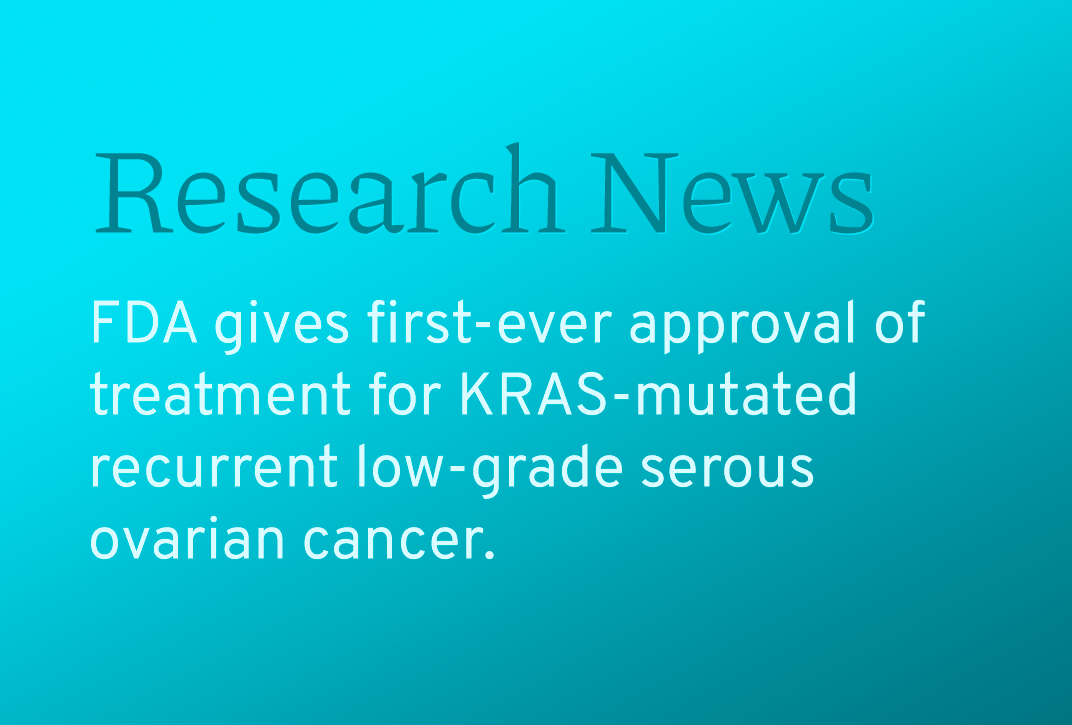
Dr. Tian-Li Wang is an Assistant Professor in the Department of Obstetrics and Gynecology at the Johns Hopkins Medical Institution in Baltimore, Maryland. She is the recipient of an OCRF Individual Investigator Award.
Sarah DeFeo: Tell us a little about yourself and how you became interested in ovarian cancer research.
Dr. Tian-Li Wang: I was born and grew up in Taiwan and came to the United States for graduate study. I have been interested in biology, and how living things work, since I was a child. I became interested in how the aberrations of functions contribute to human diseases, so in college I took cell biology courses and was fascinated about the differences in cancer cells and normal cells. I decided early on that I wanted to focus on female-oriented cancer research but it actually took me many years before I entered the field of ovarian cancer research. My PhD training focused on neuroscience, so I had to do a second post-doc fellowship to train in colon cancer research, which helped me gain the essential knowledge and techniques that I could ultimately apply to ovarian cancer research, which I focus on now.
SD: In lay terms, can you explain what your research is about?
TW: My research starts with cancer genomics since that is what I learned as a post-doctoral fellow. Currently, my research team is studying the genome-wide mutation spectrum in ovarian cancer and has identified several unique patterns in ovarian cancer. For the OCRF-funded project, I focused on one of the most promising genes, a Notch3 receptor, in ovarian cancer because it may play a role in the development of the disease, and also may be important in maintaining cancer stem cell lineages, which cause cancer to recur.
SD: What do you hope the outcomes of this project will be?
TW: Based on the recent progress of my OCRF-sponsored project, I expect that we will be able to shed light on the roles that Notch3 signaling plays in the origins of ovarian cancer. My hope is that our observations will be very important for the future development of Notch3-based therapies to treat the disease.
SD: You are the recipient of OCRF’s $100,000 Individual Investigator award. What impact has OCRF funding had on your ability to pursue ovarian cancer research?
TW: I am so grateful for the opportunity that OCRF has offered to me to continue and to even expand my research focus. OCRF funding has permitted me to perform costly studies to test a new hypothesis. In addition, I was able to use this research support to obtain sufficient research data for publications, as well as secure important new research funding for this and other ovarian cancer research projects. In short, it has allowed me to continue – and expand – my work in this field.
SD: What do you see as the biggest challenge in ovarian cancer research?
TW: Ovarian cancer is one of the most lethal neoplastic diseases in women. The cancer’s aggressive behavior is largely attributed to the failure of current therapeutic treatments to effectively stop the spread of the disease. Ovarian tumors have an inherent genomic instability which allows them to survive even in the face of chemotherapy and a woman’s own immune response. I hope that with continuous research in cancer genomics, we will understand the genomic instability accompanied with ovarian cancer. Furthermore, the current chemotherapeutic regimen only targets the fast-dividing cancer cells, leaving unharmed the slow-growing cancer “stem cells,” which we believe are responsible for causing ovarian cancer to recur. Developing new regimens to eradicate these cancer stem cells will have profound impact in future cancer therapeutics and women’s lives, which is why my OCRF-funded project focuses on developing and assessing these next-generation therapeutics.


